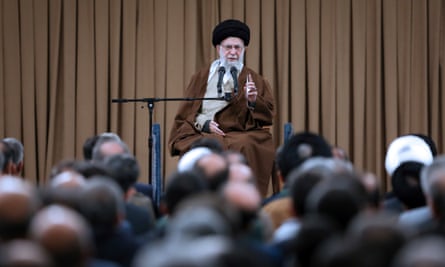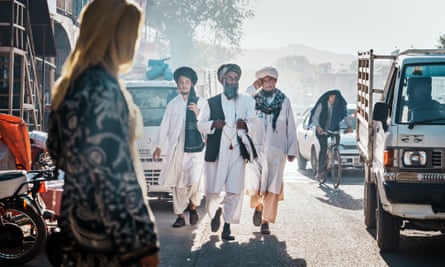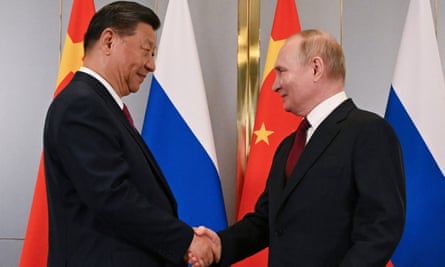Google has cooperated with autocratic regimes around the world, including the Kremlin in Russia and the Chinese Communist party, to facilitate censorship requests, an Observer investigation can reveal.
The technology company has engaged with the administrations of about 150 countries since 2011 that want information scrubbed from their public domains.
As well as democratic governments, it has interacted with dictatorships, sanctioned regimes and governments accused of human rights abuses, including the police in Taliban-controlled Afghanistan.
After requests from the governments of Russia and China, Google has removed content such as YouTube videos of anti-state protesters or content that criticises and alleges corruption among their politicians.
Google’s own data reveals that, globally, there are 5.6m items of content it has “named for removal” after government requests. Worldwide requests to Google for content removals have more than doubled since 2020, according to cybersecurity company Surfshark.
Google is one of the world’s most powerful information gatekeepers, with billions of people using its products such as Search, YouTube, Drive and Chrome every day.
The company regularly receives requests to take down information from national and local governments globally, as well as judiciaries, police forces and military bodies.
Information can be taken down for a variety of reasons, such as copyright infringement, privacy breaches, defamation, or for violating the company’s policies.
Google does not publish full data on takedown requests, but it does produce a selection of summaries about certain censorship requests it believes “may be of public interest”. These summaries are included in the company’s Transparency Report, which it updates every six months.
Analysis by the Observer of this report has revealed an opaque process for removing content and incomplete data. It raises questions about Google’s role in controlling public information, and in areas such as disinformation, war propaganda and geopolitics. Critics have expressed concern that Google is “playing God”, with little oversight or regulation.
The Observer analysed the removals data for specific countries, the types of requests made, who was making them and over what time period they were made. In some cases, where Google has set out details of specific requests, these were also analysed.
After national security, the majority of global takedown requests to Google since 2020 are on the grounds of copyright, and privacy and security. Thousands of requests are categorised as “other”, with no further explanation provided by Google.
One removal request can be for multiple items of content. Google, whose parent company, Alphabet, made revenues of $350bn last year, also gives figures for the total items it has “named for removal”, but does not specify how many it has actually removed.
In the four years to June 2024, Russia accounted for more than 60% of takedown requests. The country’s internet censor, Roskomnadzor, is one of the government agencies that corresponds most frequently with Google – and has earned the nickname “Rosco” in some of its reports.
At the behest of Roskomnadzor, the tech company removed a YouTube video that allegedly exposed “corruption among politicians” and made “some rhetorical threats of violent action against the alleged corrupt politicians”, Google’s report said.
Russian citizens were also prevented from viewing certain posts on the company’s Blogger platform, which “included criticism of Russian military history and policy, and Russian patriotic holidays. It also incited violence against residents of a Russian town,” the report said.
YouTube footage of Ukrainian protesters burning a Russian flag and of people insulting Russian state symbols was also taken down.

In 2022, Google censored multiple YouTube videos calling for protests against Vladimir Putin’s government. Other pieces of content that criticised Putin, including the late Russian opposition leader Alexei Navalny’s tactical-voting recommendations, were temporarily blocked during the September 2021 election period. Roskomnadzor “and other Russian government entities” also asked that Google removed Navalny’s Smart Voting app from its Play store, which it did.
A Kremlin cabinet minister, a senator, the boss of a state-owned bank and the head of a government agency have all sought Google’s assistance to scrub information from their domestic internet. But it is not known if Google agreed or what it removed for them, and the company did not provide further information when asked.
In China, at the request of the ministry of public security, which oversees the police and domestic political spying networks, Google took down more than 200 videos. The ministry had requested removals for 412, of which 346 “contained allegations about corruption within the political system in the People’s Republic of China or stories about top government officials”.
Google also assisted in China’s crackdown on free speech, removing profiles that impersonated the country’s president, Xi Jinping. Online impersonation accounts were banned in 2015 after Chinese citizens used them to covertly criticise Xi and to circumvent censorship laws, which are some of the world’s most prohibitive.

Iran’s most recent request to Google was in 2016, ruled then, as now, byits supreme leader, Ayatollah Ali Khamenei. His executive government wanted Google to censor four pieces of content on the grounds of “bullying/harassment”. There was “no action taken” by Google, according to its report.
The company has also engaged with the Afghanistan police, who contacted it 19 times in 2023, an increase of 180% from the previous year.Afghanistan was recaptured in 2021 by the Taliban, whose police forces include the street-patrolling “morality police”. After returning to power, the Taliban introduced new laws against slandering the government.
after newsletter promotion
Google has not published any further details of what the police requested be removed, beyond categorising the requests as “fraud”.

Taliban authorities asked for more information to be removed in 2023 on the grounds of “privacy and security”. Google has not made public any further information about these requests and did not respond when asked for details.
Harriet Moynihan, an associate fellow at the Chatham House thinktank, said: “Part of the right to freedom of expression is the right of access to information – which is restricted when censorship is in place.”
Moynihan said that, even if Google was only removing content in line with its own guidelines, “there’s a strong broader point about whether Google and other technology companies should be operating and playing God in this way, with such little regulation.
“Transparency is the big issue. We are only scratching the surface as researchers into what these tech companies are doing, including the use of their algorithms … The balance of power has shifted way in their favour.”
By Google’s own admission, the examples it makes public only “provide a glimpse” of what it is asked to take down and are “not comprehensive”. Much of the data published by the company illustrates when it has stood firm against government requests, not when it has agreed to them. Nor does Google provide data on its decision-making framework or who regulates these decisions.
US authorities have made more than 12,000 takedown requests since 2011 – with multiple items of content often included in a single request – but Google has published details of fewer than 40 of these.
Google addresses the political nature of its role in its Transparency Report, stating: “Often times, government requests target political content and government criticism. Governments cite defamation, privacy and even copyright laws in their attempts to remove political speech from our services.
“Our teams evaluate each request and review the content in context in order to determine whether or not content should be removed due to violation of local law or our content policies. We always assess the legitimacy and completeness of a government request.”
The company added: “We share this information to shed light on the scale and scope of government requests for content removals. We hope to draw attention to the laws and legal processes around the world that affect access to information online.”
Google does challenge takedown requests and has publicly fought with Russia over censorship. Last October, a Russian court fined the company $20 decillion, a “symbolic” sum that is more than the world’s gross domestic product and equal to two undecillion roubles – a two followed by 36 zeros – for restricting Russian state media channels on YouTube. Russia has continued to make censorship requests to Google, however, and last did so in the period ending June 2024, the most recent data available.

Days before Russia invaded Ukraine, and before it declared a “no limits” partnership with China, Russia unsuccessfully sought the removal of 600 domestic links related to the Chinese president. The links included the Wikipedia pages on Xi in seven languages, as well as news articles about him in the Economist and the New York Times, and by broadcasters France 24 and the BBC. Google declined to remove them, however, partly because Roskomnadzor failed to provide it with enough information.
Tomas Stamulis, chief security officer at Surfshark, which regularly tracks Google’s removals data, said it was important for the public to know about Google’s takedown process because “these requests often target political content and criticism of government actions”. “During periods of political instability or social unrest, governments, particularly authoritarian ones, may demand the removal of content they perceive as threatening or destabilising to suppress dissent,” he said.
“Overall, the increase in removal requests reflects the growing importance of the internet in public life, and the challenges of managing content that crosses international and jurisdictional boundaries.”
Google declined to comment.
Source: theguardian.com

















